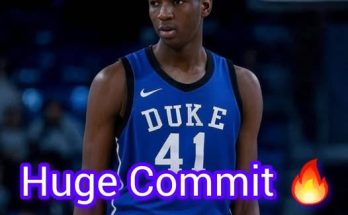Aliyah Boston has never been one to shy away from speaking her truth, and when the Indiana Fever’s rising star was asked about WNBA legend Candace Parker, her response was immediate, direct, and filled with admiration. In a league built on generational greatness, the bridge between past and future often lies in the voices of those currently carrying the torch. For Boston, that bridge is paved by Candace Parker—whom she calls “the blueprint.”
At just 22 years old, Boston is already becoming one of the faces of the WNBA. The former No. 1 overall draft pick and 2023 Rookie of the Year is known not only for her dominance in the paint but also for her intelligence, poise, and leadership. While many up-and-comers credit Parker as an inspiration, Boston takes it a step further—calling Candace a trailblazer whose career has directly shaped how she carries herself both on and off the court.
“Candace Parker is the blueprint we all follow,” Boston told reporters following a Fever shootaround. “Her versatility, the way she broke barriers, and how she’s stayed true to herself in every phase of her career—that’s the standard.”
Parker, a two-time WNBA champion, two-time league MVP, and the first woman to call an NBA game on national television as a lead analyst, is widely regarded as one of the most influential athletes in the sport’s history. Her impact transcends stats—she redefined what it meant to be a modern big: mobile, skilled, vocal, and marketable. And for a new generation of players like Boston, she represents the power of persistence and possibility.
“I grew up watching her highlights on YouTube,” Boston continued. “I’d be in my backyard trying to hit turnaround jumpers like her or make those no-look passes. But more than that, I watched how she moved. How she spoke. How she led. That stuck with me.”
In many ways, the parallels between Boston and Parker are impossible to ignore. Both entered the WNBA as top picks with NCAA championships under their belts. Both made immediate impacts in their rookie seasons. Both have that rare blend of grace and grit—capable of bullying defenders under the basket while still sinking a soft midrange jumper with ease.
However, what sets Boston apart is her unapologetic approach to representation and leadership at such a young age. She often talks about being a role model for young girls—especially those from underrepresented communities. And when Candace Parker announced earlier this year that she would be stepping away from playing after a Hall of Fame–worthy career, Boston was one of the first to react publicly.
“It’s the end of an era,” she wrote in an emotional Instagram post. “But her legacy is everywhere—in all of us.”
Since Parker’s retirement, conversations have swirled around who will carry the mantle she leaves behind. Caitlin Clark has drawn headlines with her elite shooting and viral moments. A’ja Wilson has continued to dominate with back-to-back MVP-level performances. But for those watching closely, Boston’s steady climb suggests she may be the one to embrace Parker’s multidimensional legacy: an elite performer, a vocal leader, and an agent of change.
“She made it cool to be dominant and outspoken,” Boston said. “To care about basketball, yes, but also community. To speak on issues that matter. To balance it all with grace.”
That balance is something Boston is already beginning to master. Despite the intense media spotlight on Caitlin Clark’s arrival and the Fever’s increased visibility, Boston has remained a calming and commanding presence in the locker room. She’s averaging near double-double numbers and serving as the team’s emotional anchor. She’s also been active in initiatives promoting mental health, youth engagement, and athlete empowerment.
“She doesn’t just lead by example,” says Fever coach Christie Sides. “She leads with intention. And a lot of that comes from who she’s studied—Candace being at the top of that list.”
Boston even reached out to Parker privately earlier this season to thank her for “laying the groundwork.” According to sources close to both players, the conversation was emotional and filled with mutual respect. Parker, who has long admired Boston’s game from afar, reportedly told her: “You don’t have to become the next me. Be the first you. And that will be more than enough.”
It’s that kind of exchange that underscores the beauty of the WNBA’s growth—the passing of wisdom from one generation to the next. And while Parker’s voice may now be heard more from broadcast booths than locker rooms, her presence lives on in players like Boston.
“There are a lot of amazing players in this league,” Boston said. “But Candace? She’s forever. And it’s on us to carry that torch in our own way.”
This torch isn’t light. It comes with pressure, scrutiny, and the weight of expectations. But Boston appears unfazed. With each game, she’s growing stronger, more assertive, and more vocal—not just about her game, but about the league’s future.
She recently joined the WNBPA’s leadership development program, showing signs that she, like Parker, may eventually take on roles beyond just playing. As more young girls wear her jersey and imitate her post moves in driveways across America, Boston is quickly becoming what Parker once was: the player everyone looks up to.
And that, according to Boston, is the highest compliment.
“She did it all and made it look easy. I just hope that one day someone looks at me the way I look at her.”
In a league built on sisterhood, shared struggle, and collective growth, that kind of respect is rare and real. Aliyah Boston’s tribute to Candace Parker isn’t just a nod to a legend—it’s a declaration of purpose. The torch has been passed. And by all indications, it’s in powerful hands.



